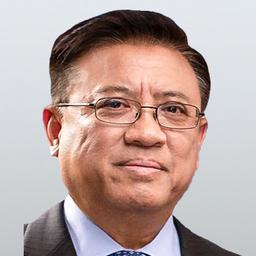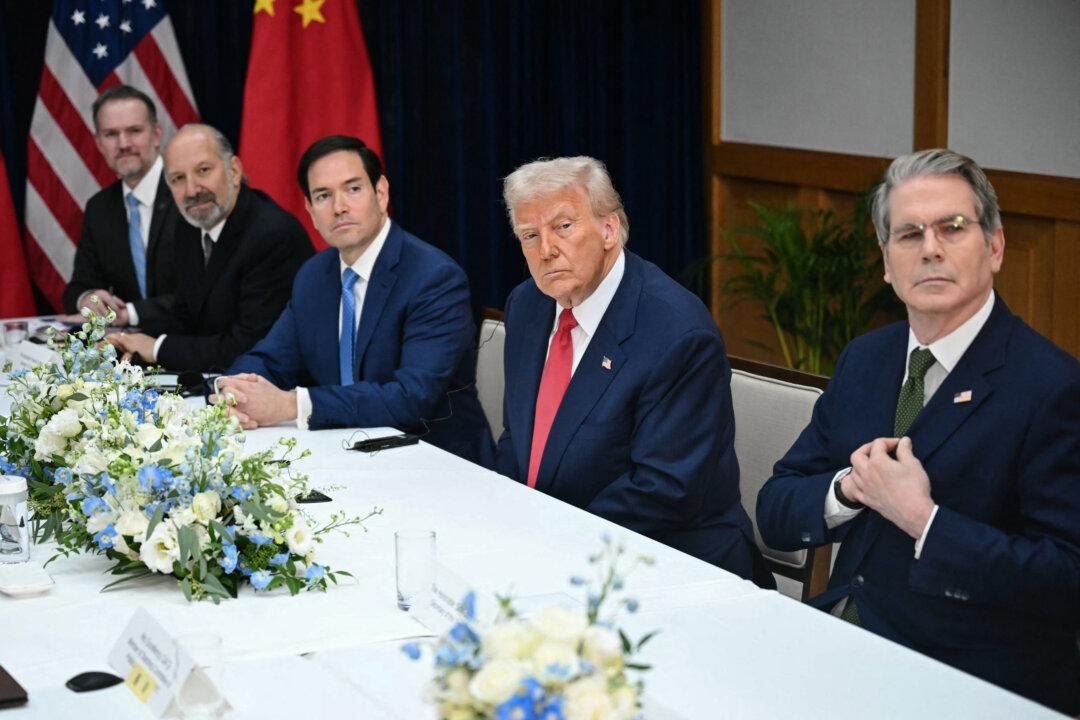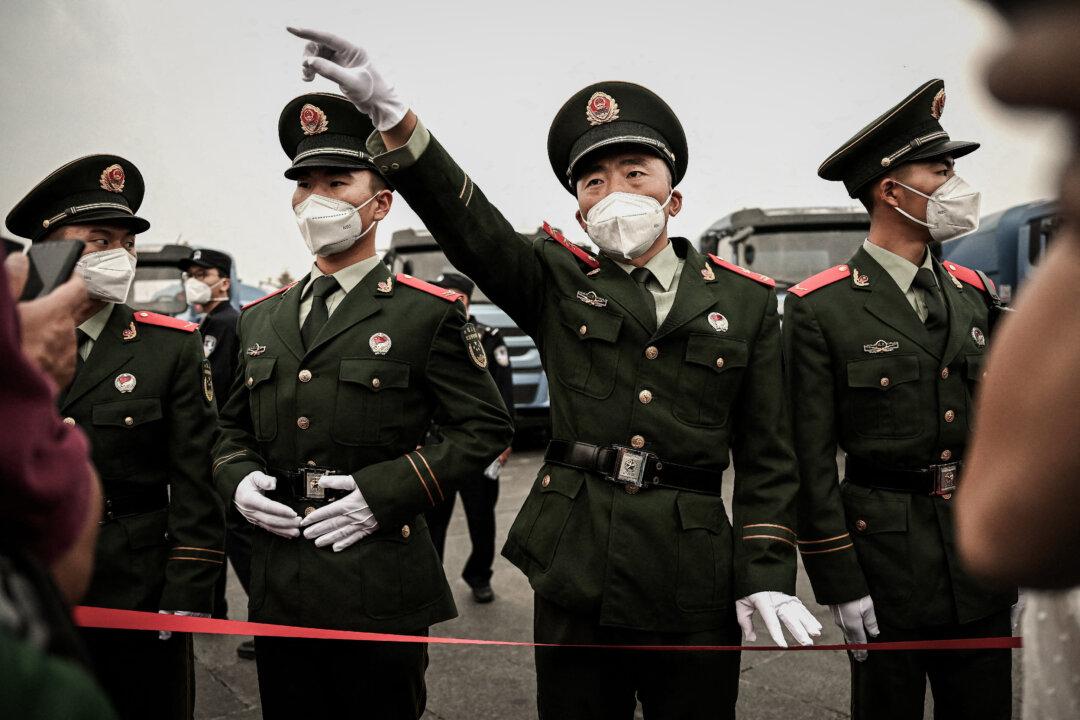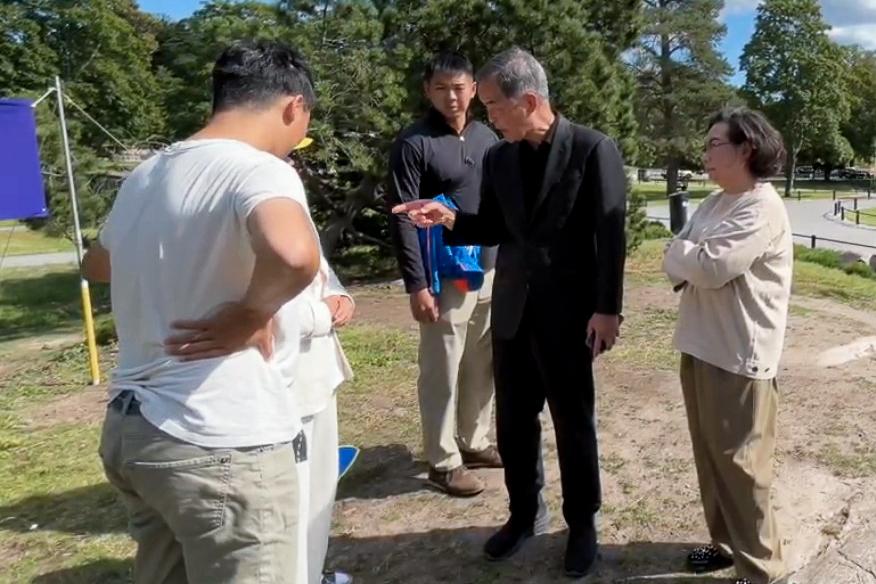Most people thought the stories the journalist Chen Yongzhou broke about fraud at China’s largest maker of construction equipment were true.
After he was arrested for his reports on the Hunan Province-based Zoomlion, his newspaper did something extraordinary and unprecedented. New Express twice put a banner headline on its front page: “Please Release Him” and then “Again, Please Release Him,” together with a formal statement supporting him.
Other local media also started to support Chen Yongzhou. Even the official All-China Journalists Association asked the authorities in Hunan’s capital, Changsha, to give a legal and convincing explanation for the arrest.
It’s still not clear why media outlets openly and officially showed their support to a journalist. Maybe they thought that the company Chen exposed was a provincial-level enterprise. Or they thought they were dealing with the police from Hunan Province, not the state-level authorities.
Or perhaps they assumed that exposing the wrongdoing and corruption of a business fits the current anti-corruption campaign. Or maybe they repeatedly checked the evidence and confirmed the reliability of Chen’s sources. Whatever they thought, they thought wrong.
A Red Line
The other side fought back, although so far, who exactly is behind the other side is not clear.
A few days later, CCTV Morning News broadcast a nine-minute program about the case. Chen Yongzhou appeared with a shaved head, handcuffs, and a prison vest.
Chen confessed to taking bribes from someone to defame Zoomlion and said he didn’t even read some of the articles before publication. He basically admitted guilt in front of millions of viewers before he had even been formally charged with any crime.
Even in a country like China, without the rule of law, Chen is not a criminal, at least not yet. Putting him on TV to confess reminded people of the Cultural Revolution.
By doing so, CCTV violated Chen’s basic rights. Gu Kailai, the convicted premeditated murderer of British businessman Neil Heywood, did not have her head shaved or her hands cuffed during her trial.
The Chinese regime wants the world to believe that China has the rule of law, but putting the shaven-headed Chen Yongzhou on TV was not good public relations. Then why did CCTV do it? The point was not just to humiliate Chen. More importantly, the regime wanted to let the media—or anyone who challenges it—know where the red line that they dare not cross is drawn.
Mouthpiece
After the CCTV show, the media fell in line. The All-China Journalists Association openly condemned Chen Yongzhou. New Express withdrew the supporting banner and article and started to criticize Chen and itself.
But it was too little too late for New Express’s president and chief editor, who were fired several days later by the parent company, the Yangcheng Evening Group. The day before the firings, Chen’s media credentials were canceled.
In an interview in 2000, then-paramount leader Jiang Zemin told Mike Wallace of “60 Minutes,” “The press should be a mouthpiece of the Party.” No media in China exists that meets the standards of the West.
Besides the CCP Central Committee’s mouthpieces—People’s Daily, CCTV, and the Xinhua News Agency—every province’s Party Committee has its own mouthpiece. The Yangcheng Evening Group is the mouthpiece of the CCP’s Guangdong Provincial Committee.
The main function of the mouthpiece media is to transmit the Party’s propaganda. When CCTV humiliated Chen Yongzhou, it wasn’t reporting the news. It was completing a political task. It didn’t need the facts to do such a job.
Gray Area
However, since pure propaganda has less and less of an audience, the mouthpiece media outlets face a growing challenge. They also need to make money to survive or even to get rich.
Many small newspapers, evening news shows, and magazines were created by the main mouthpieces to attract readers and audience. On the condition these subsidiaries toe the Party line, making money became their main purpose. New Express is just this kind of newspaper.
This policy and practice has created a large gray area. On the one hand, reporters have more freedom to report the nonpolitical issues, such as entertaining news, gossip, and the like. Sometimes, a news outlet even makes up stories to create some buzz.
New Express made up some fake stories about Korea years back and didn’t even apologize to readers when the fakes were exposed.
On the other hand, more and more reporters are trying to dig up the real news. The corrupt officials and businesses are usually good topics, considering the general public’s opinion toward those officials and businesses.
Like the State Itself
The target of Chen’s reporting, Zoomlion, is a state-owned enterprise, with the Hunan Provincial government owning 20 percent of its stock. So far, neither CCTV’s program, nor Zoomlion’s statement, nor Changsha’s police, has shown any evidence to counter Chen’s story. Any belief in Chen’s guilt must hang solely on the thin reed of Chen’s confession.
In China, a state-owned enterprise is not only a business, but is also more like the state itself. Unlike private entrepreneurs, who need the support from the government or its corrupt officials, the officials in a state-owned enterprise are appointed by the CCP Organization Departments, just like their counterparts in the Party and the state.
When the Changsha police drove the more than 400 miles south to Guangzhou to arrest Chen Yongzhou, they used a Zoomlion Mercedes-Benz. The police even didn’t try to hide the fact that they are Zoomlion’s watchdogs.
Besides, Zoomlion top executives have many connections in Hunan official circles. According to Hong Kong Apple Daily, the father of Zoomlion’s CEO is the former president of the Hunan High Court, while his father-in-law is the former second secretary of the CCP Hunan Provincial Committee.
It is widely believed that Zoomlion is a home base for Hunan’s provincial high-ranking officials. The Hunan official circle also has strong connections with the central political legal circle in Beijing. The former secretary of Central Political and Legal Affairs Committee Zhou Benshun and current president of the Supreme Court Zhou Qiang are both from Hunan Province.
Controlled From Above
Exposing Zoomlion probably wouldn’t touch the real power at the top. But exposing Zoomlion definitely would inspire other journalists to dig for similar news. That is intolerable to the Party.
The Party believes that the anti-corruption campaign should be well controlled from above, not pushed forward by random journalists or newspapers. So far, political motivations have lain behind most of the exposure of high-ranking officials’ corruption. Many of these officials are linked to the former security tsar Zhou Yongkang.
If Chen Yongzhou and New Express were left unpunished, who knows who could be next?
Did Chen Yongzhou really receive money for the reports published on Zoomlion, as he confessed on CCTV? If the system can extract confessions from top Party members like Bo Xilai or his enforcer police chief Wang Lijun, crushing a journalist should not be a problem. Besides, when the shaven-headed Chen was trotted out by CCTV, a telltale bruise was visible on his neck. Who knows what other bruises were hidden under his clothes.
But even if Chen received money, this still doesn’t prove his report was invalid. Besides, while the accusation was made that he took bribes, nobody ever mentioned who gave him the money, neither CCTV, nor the police.
In China, there is no normal media, no normal legal system, and no normal business environment. In this abnormal situation, the fate of Chen Yongzhou was business as usual.




